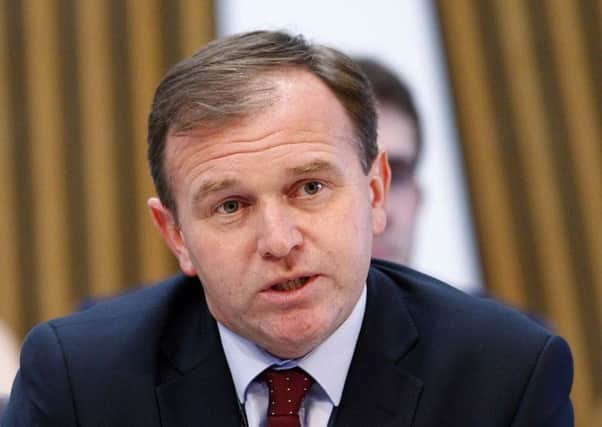Defra '˜doesn't have a clue about post-Brexit world'
This article contains affiliate links. We may earn a small commission on items purchased through this article, but that does not affect our editorial judgement.


And although Prime Minister Theresa May is set to outline more of her vision for the post-Brexit world later today, serious doubt was cast on the UK ever actually leaving the EU by a leading agricultural economist.
Speaking at the annual Semex conference in Glasgow, economist and seasoned industry commentator Sean Rickard said that while the farm minister’s earlier address might have scored highly in platitudes, it rated lowly on actual vision.
Advertisement
Hide AdAdvertisement
Hide Ad“There was plenty of hope there – but, as has been said before, hope isn’t a strategy and is usually, instead, an admission of a lack of strategy,” he said.
Stating that he didn’t believe the government had any idea as to the environment which farmers would face in a post-Brexit world, Rickard said that it was a nonsense that a “policy to suit Britain” could be put in place.
“In fact there are only two possible ways forward for the UK,” he claimed. “One is the hard Brexit which, as Theresa May herself said last week, would represent jumping over the edge of a cliff.
“The other is a transition arrangement similar to the deal negotiated by Norway which would see us remain in the European Economic Area and basically subject to all the EU regulations and requirements – without a seat at the top table but with the ability to begin unilateral trade negotiations.”
Rickard said that to gain political acceptance, this arrangement could be sold as a transition measure for a period of five years or so – giving time for some of the complex and lengthy trade deal negotiations to be entered into.
“There simply isn’t any time for any other negotiations to be completed or deals hammered out in the current timescale available,” he said.
However, Rickard later indicated that, during this transition period, UK voters might realise that leaving the EU was not such a good idea after all – and he said that while farmers would be the hardest hit by any move away from the EU, voters were also likely to find themselves worse off.
“A year or two from now, with the collapse in the value of the pound pushing up costs for everyone, slow growth in the economy and in wages the general public – who thought they were voting for a better life – might decide to change their minds about leaving the EU at the next election,” he said. “People certainly didn’t vote to be poorer – but that’s exactly what they’re going to get.”
Advertisement
Hide AdAdvertisement
Hide AdRickard said that even if the UK did continue on track and eventually leave the EU, times would be tough.
“We can say with absolute certainty that never, anywhere in the world, will we get any deal as good as the current ones which we have enjoyed under the single market,” he concluded.
“And Europe can’t give us access to the single market if we walk away – because that would just invite the next member state to leave.”
George Eustice sets out his ‘vision’
An end to any form of direct support payments and the introduction of measures tailored to water catchment areas and landscape approaches, together with risk management tools such as forward markets, crop insurance with government backing and encouragement for innovation.
These were some of the pointers towards post-Brexit farm policy given by UK farm minister George Eustice yesterday.
Speaking at a major conference in Glasgow, before touring a Renfrewshire farm with NFU Scotland, Eustice painted a picture of support tailored to fit the British situation.
“And I’m proud that I will be the first agricultural minister for almost half a century to be able to have a direct say in how farm policy develops in this country,” he said.
Proposing a farming future which consisted of an innovative, high-tech approach paired with the “values of our grandparents” who, he said, recognised the benefits of using the best genetics available for livestock and proper crop rotations “without compromising yields”, Eustice said that there was also a need to ensure that the market was a fairer place.
Advertisement
Hide AdAdvertisement
Hide AdSpeaking after his address, Eustice also promised that it was “absolutely clear” that there was no intention to dilute the current devolution measures enjoyed by the Scottish Government – but he added that there was a requirement for an over-arching UK policy framework for any support measures.
“Clearly there will need to be agreement to avoid market-distorting approaches between the administrations,” he said.
“For example we couldn’t have Scotland and Wales introducing large sheep headage payments while farmers in Cumbria didn’t benefit. We need parameters to protect the integrity of the UK market.”
